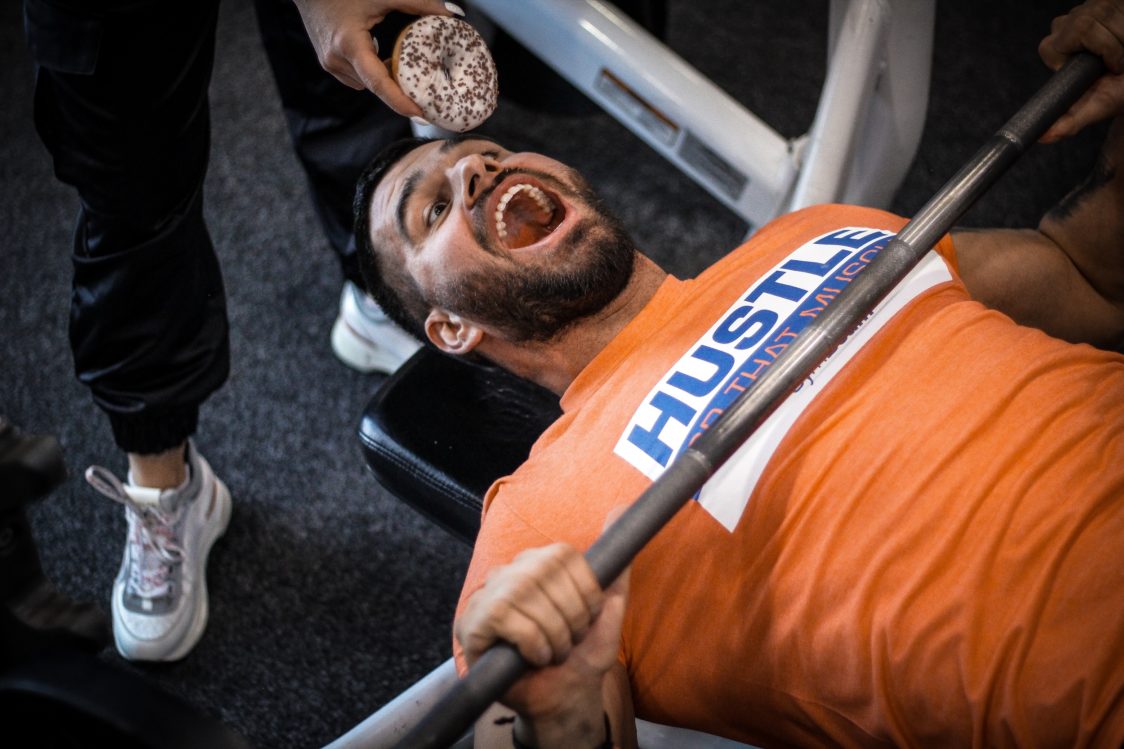People approach sports and exercise differently, some prefer modern fitness centers , others feel at home when exercising better. In addition to the intensity, the attitude to the training time also differs. There are definitely advocates of afternoon training among you, but morning training has its fans too.
One of the arguments in favor of early training is training on an empty stomach . It is believed that a person burns more fat and loses weight faster on an empty stomach. But is it really like that? Will we set the alarm for an earlier hour?
Morning exercise burns more calories
The human body requires energy for physical activity , which is obtained from food. More specifically, it is represented by three macronutrients – proteins, carbohydrates, and fats . Carbohydrates in food are a quick source of fuel because they break down into glucose, which flows through the bloodstream. There is also a connection with carbohydrates – the body draws energy from stored carbohydrates and fats during exercise on an empty stomach, not from food that you would otherwise have just eaten. So should we all work out in the morning before breakfast?
As already mentioned, carbohydrates are broken down into glucose, which is an energy source. In addition, the body can store it in the form of glycogen in liver and muscle tissue . It is a fast source of energy, but after a night without food, the sugar reserves in the liver are pretty depleted. When the body does not have energy from available carbohydrates, it uses fat as a fuel .

This finding is not only the result of knowledge of the processes in the human body. This has been confirmed by several studies , for example by a study by the University of Bath from 2017 . The researchers found that several genes that are present in lipid metabolism, in glucose transport and in the insulin signal , behave “differently” during exercise after a meal and on an empty stomach . Exercising on an empty stomach triggered certain genes in obese men that could accelerate fat burning. According to another study from 2013 active men burn 20% more fat on an empty stomach than after breakfast.
What happens to the human body when we train on an empty stomach?
fat cells are broken down – lipolysis.
- fat is used as fuel .
- The hormone level that the use of Fat supports as fuel, rises.
- The breakdown of fats in the stomach is encouraged.
- The blood flow to the abdomen increases.
So, morning exercise on an empty stomach is better, and scientists are proving it, too. If it were that simple, this article would end here, everyone would work out in the morning, and the gyms could quietly close in the afternoon. The whole topic is a bit more complex, however.

Exercising on an empty stomach is great, but …
Some people exercise in the morning because they prefer to “get it over with” before work, while others want to lose weight faster . Before running or lifting dumbbells before sunrise, there are some interesting things to consider.
Fasting is beneficial in terms of increasing growth hormone and insulin sensitivity . These processes can lead to fat loss. However, keep the following two facts in mind:
- Intense fasting can affect your muscles – this hook you may have been waiting. During a strenuous morning exercise before breakfast, muscle wasting can occur as the body can break down amino acids to maintain blood sugar levels . During a fast run or a high level of strength training, more glycogen is used than fat , and it doesn’t matter if you have an empty stomach. This is also confirmed by a study by Schönefeld from 2011 , which will be of particular interest to bodybuilders and athletes who are interested in muscle mass. Fast training has a significant effect on the protein stores that you have gained through diet and exercise. It can cause their loss by up to 10.4%.
- We burn all day through glucose and fat – remember that the amount of fuel comes from glucose or from fat all energy “demands” during the day. However, when it comes to burning fat, it’s more about total energy expenditure. Yes, you can burn more fat by exercising on an empty stomach , but overall, it probably won’t be enough to get rid of the problem fat.

Are you really interested in daily energy consumption ? To learn more about it and its calculation , read our article – How to Calculate Basal Metabolic Rate and Daily Energy Consumption?
Common truths and rules without relevant evidence just become “hypotheses”. It is up to research to analyze and validate theories that make “logical” sense. Exercising on an empty stomach triggers other genes in overweight people, but exercise before breakfast may not be a universal guide to fat loss for everyone.
Proof of this is also the Research from 2014 examining the hypothesis of the effectiveness of fasting exercises. The aim of the researchers was to compare the differences in fat and “fat-free” tissue of young women after aerobic training on an empty stomach or after a meal .
The participants were randomly divided into groups “fasting” and “after eating”. It should be noted that all respondents followed the diet plan and a Calorie deficit . Loss of weight and adipose tissue was found in both groups. Wonder how much better the group that trained on an empty stomach was? According to the results, there were no significant differences between the groups . It is true that only young women were involved in the study, and their number was not particularly high either (20 respondents). On the other hand, it can mean that it doesn’t matter whether you jog before or after breakfast, if you are on a sensible diet and exercising.

Less strength during training
Another argument against fasting training is less strength during training . Using fat for energy requires more oxygen so it takes longer to break down fat compared to carbohydrates. To maintain a high intensity, the “speed” of fat metabolism is slow . This means that your training may be weaker than before. [1 ]
The proof is the result of a 2019 study that found the performance of squats and bench press after a high-carb breakfast and a “Water-only” breakfast was compared. The participants’ task was to perform 4 sets of squats and bench presses equal to 90% of their maximum for 10 reps (10 RM – maximum reps). The result? Participants who only drank water in the morning and had not had breakfast had a 15% reduction in squatting strength and a 6% reduction in bench press . The results show that training, that of lifting higher weights or the need for strength is likely to be more useful and effective after a meal. You may burn more fat, but your performance may “degrade,” which you are unlikely to like emotionally, and there is a risk of injury from fatigue.
Sudden loss of energy (“The Bonk”)
With Exercising before breakfast carries a additional risk related to the glycogen supply . In English it is known as The Bonk or “Hit the Wall” . Energy loss occurs due to the depletion of glycogen stores . A complete “bonk” occurs when the glycogen is completely depleted of the muscles and liver.
The glycogen stored in the liver is used up after a hard workout or one night. Remember, it’s not just your muscles that need energy, but your brain too. When you are on an empty stomach, the source of energy for the brain is glycogen in the liver. Therefore, when you exercise on an empty stomach, there is a risk of energy loss leading to a lack of glycogen in the muscles, but can also lead to a low level of “fuel”, which is supplied to the brain ..
How can a sudden loss of energy be prevented?
On the other hand, severe glycogen loss is more likely to occur during longer endurance activities than during short and intense training. You can logically prevent energy loss by consuming carbohydrates and replenishing glycogen stores, especially after a long workout of an hour or more. An important fact is that chronic malnutrition can also be behind glycogen deficiency . So if you’re considering exercising on an empty stomach, keep your “glyco supplies” in mind, which you can really feel depleted. So it depends on the intensity and type of workout you prefer.
If, despite the disadvantages of fasting workouts, you are determined to continue doing this, we give you at least two tips :
- Don’t just train on an empty stomach – this training method is only suitable for low intensity. It is therefore not recommended to exercise more than twice a week before breakfast. So if you exercise at least four times a week, try to balance it. For less demanding workouts, leave your stomach empty and you should replenish your energy from the diet before the intense ones.
- After training, think about proteins and carbohydrates – Sport puts a strain on you Body and needs nutrients to regenerate after training. Therefore, give your body not only carbohydrates but also proteins after training.

What to eat before training?
The aim of the article is not to convince you to consume food before training, but to show the advantages and disadvantages. You know your body best and what works best for it. Do you prefer to eat before a workout or have you decided to combine it? In this chapter we will try to recommend what and when to eat before and after training.
Eating something before going to the gym has several advantages :
- It increases the strength and intensity of your workouts
- It will support the regeneration of the organism
- It ensures a longer and more comfortable exercise
Your pre-workout meal should primarily provide energy for movement , without burdening your stomach . If you want to exercise in an hour, choose an easily digestible snack that is mostly high in carbohydrates.
For the best exercise results, it is advisable to have a meal , which contains carbohydrates, proteins and fats. But you have to give your digestion more time to do this – about 2 to 3 hours. Has ever happened to you that your stomach needed a little more time after you came to the gym?
For a better overview and a better choice of the right food, we offer you some examples according to the time before the workout:
If you have an hour or less before your workout – fruit, protein bar or Greek yogurt with fruit
- If you have 2 hours before training – Protein drink, porridge, whole grain cereals with milk
- If you have 2-3 hours before training – a source of protein with brown rice and roasted vegetables, a wholegrain sandwich with egg white and salad, an omelette with wholegrain toast

Are you looking for inspiration for a healthy and nutritious breakfast before training? In the article you will find up to 20 tips how to enrich your first meal in the morning – 20 breakfast tips to eat before training.
The best way to To support your performance during training, is a balanced diet . When composing your diet, you should focus on this :
- Proteins from meat, eggs and dairy products
- healthy carbohydrates from fruits, vegetables, legumes and whole grain products,
- healthy fats from coconut or olive oil, alternatively Ghi,
- various nutritious nuts and seeds, e.g. Almonds,
- nutritious and unprocessed foods.
It doesn’t matter whether you train on an empty stomach or eat something small beforehand, the morning Exercise offers a few other benefits besides burning fat. Interesting and inspiring reasons why you shouldn’t exercise in the afternoon or evening can be found in the article – 9 reasons to exercise in the morning.
Exercising on an empty stomach can be beneficial, but according to research it is unlikely to be the same for everyone. In the article, we have its “pros and cons” as well as those Research results reported on this topic. The most important thing is that your workout suits you and doesn’t cause you health problems or slow down your fitness goals. Whether you decide to eat something before your workout or not, we believe we’ve broadened your horizons again.
Would you like your friends too learn about fasting training? Feel free to support the article by sharing it.
